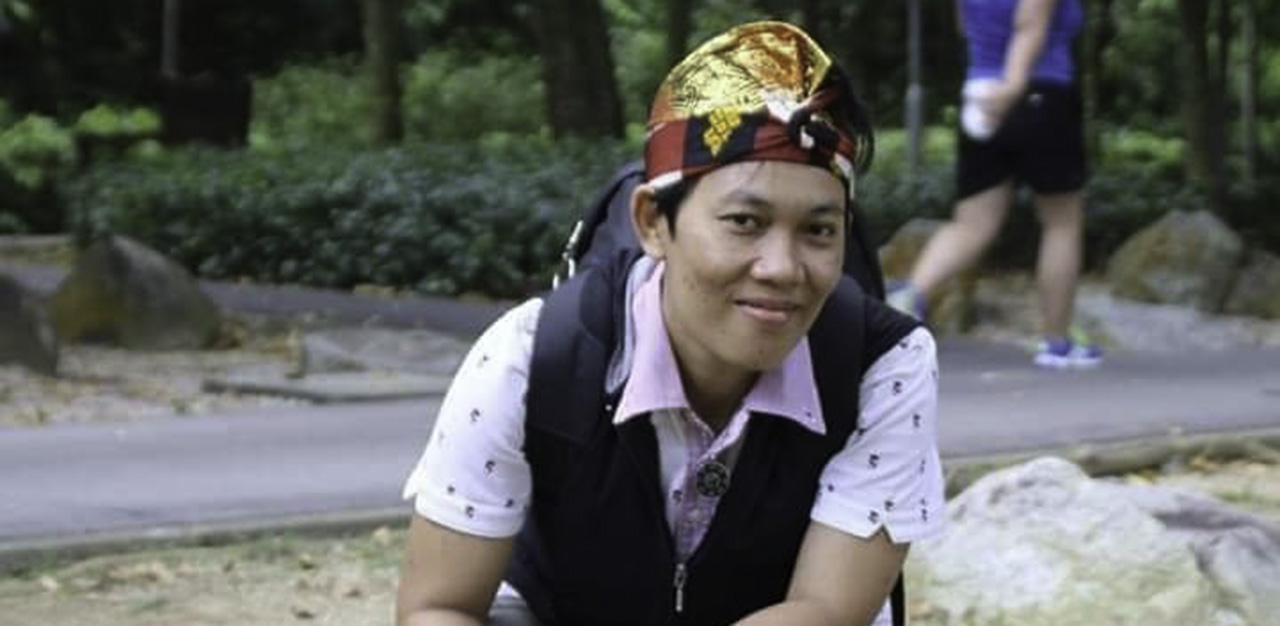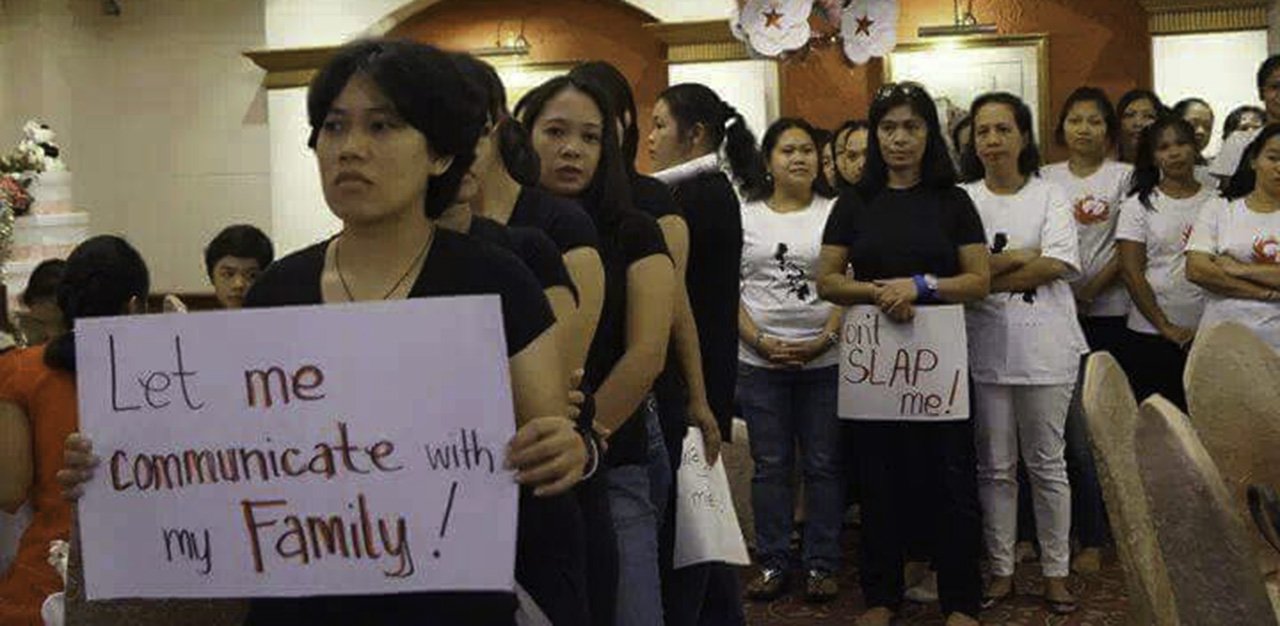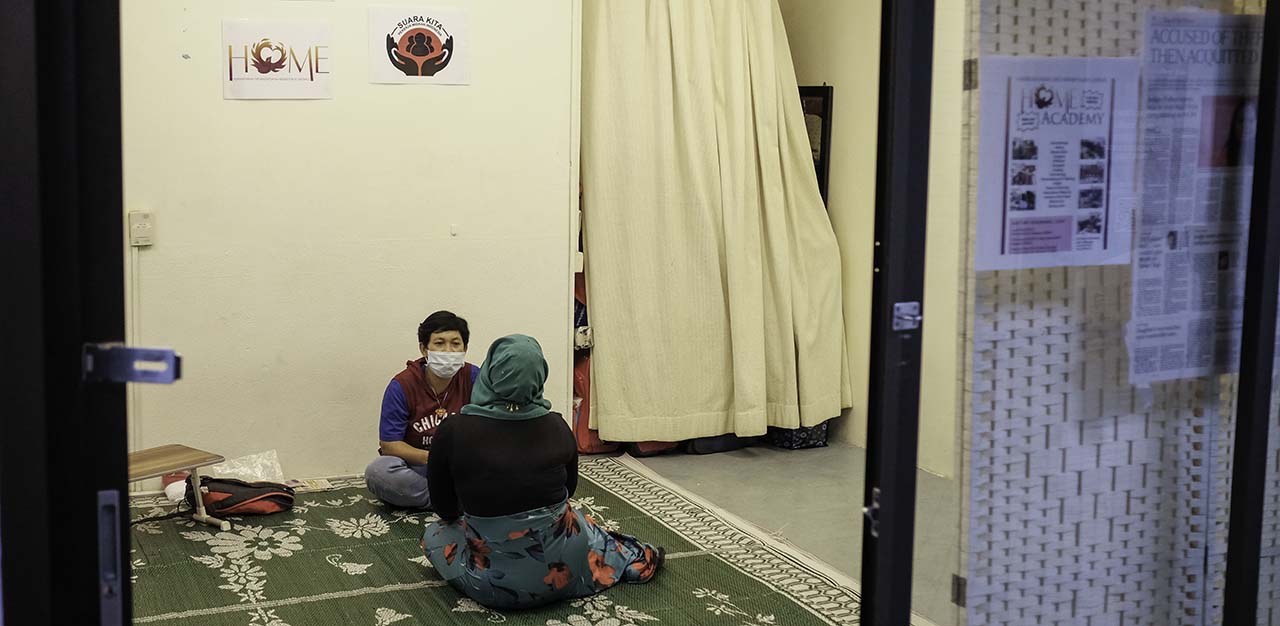When a clothing business she owned failed and left her bankrupt, Indonesian Istriyanti, or Yanti, had to find another way to support her family. She decided that the best, albeit hardest thing, was to leave her country to earn a better income as a domestic worker.
The day she departed for Singapore was one Yanti would never forget, especially having to bid farewell to her six-month-old daughter. Little did she know that it would be the last time she would see her child again. Two years later, she found out her baby had died a year before.
“I didn’t know [until one year later] as my employer did not allow me to use the phone [after I arrived in Singapore]. I was depressed. On top of it my husband decided to divorce me and left me with nothing,” she reveals. “I had built a house for us, and [I was] left with nothing. I started from scratch in Singapore, while supporting my sister and her three children back home.”
Yanti’s story of tragedy and heartbreak is one shared by many migrant women from impoverished backgrounds in South East Asia. They spend years away from their families eking out a living to give their loved ones back home a better quality of life. Unfortunately, their extended absence also puts a strain on relationships with family. Moreover, even as they become more financially secure, thousands have reported being abused and exploited by their employers.
In Singapore, there are nearly 253,000 live-in foreign domestic workers (FDWs) looking after households, children and the elderly. In 2019, it was reported that every fifth Singaporean household hired a FDW.
Discrimination, bigotry and racism encountered by foreign domestic workers, as shared in the news and on social media, go beyond the fact that they are women, but also because of their jobs and economic status.
Still, despite these battles, women like Yanti have never given up. Rather they continue to relinquish their own freedoms to fulfil a loyalty and commitment to their families. In Yanti’s case, she even dedicates what little free time she has when not working to defending the rights of other women. As a volunteer with Singapore NGO Humanitarian Organization for Migration Economics (HOME), she counsels and supports fellow domestic workers.
NOTE: This interview was translated from Bahasa Indonesia and edited for clarity and length.
READ: International Women’s Day: The Strength of an Elderly Cardboard Collector
Yanti: I’ve been in Singapore for 10 years. To be honest, there were more downs than ups. Before my current employment, I had worked for five different families and hardly any of them was good towards me. I experienced everything from unpaid salary, illegal employment to physical abuse. I stayed at MOM [Ministry of Manpower] and HOME’s shelter. I always tried to remain positive and productive. While staying at MOM’s shelter, I still went for business management course. I never wanted my trauma to eat me up.
TheHomeGround: As a woman, what kind of challenges or discrimination have you faced throughout your life, back home and here?
Y: I experience being looked down upon both in my home country and Singapore. In my hometown, people look at my situation and start gossiping. They think I have so many debts and I will only go downhill from there. In Singapore, most people look down on domestic workers. They give us disgusting looks. They think we’re dirty and smelly. They even force us to take shower twice a day, when themselves only shower once a day.
We clean their house, yet we’re not allowed to sit on the couch and anywhere else in the house except in the kitchen. We’re not allowed to have our meals at the dining table. We’re only allowed to eat on the floor or in the kitchen. One employer didn’t allow me to touch onions with my hands when I chopped them.
When I worked for a family who lived in a condominium, all domestic workers there were not allowed by the management to use the swimming pool, and we were not allowed to sit at the shelter by the pool. This, unfortunately, is still the usual practice at most condominiums in Singapore. It is very obvious that domestic workers are not allowed to use any facilities there.
THG: Because of your job as a domestic worker, has the discrimination worsened since coming to Singapore? Can you share some examples, please?
Y: The discrimination has worsened since I came to Singapore especially because we feel powerless in other people’s country. The discrimination was quite bad in my home country but as I dealt with fellow Indonesians, I felt I could still muster up the courage to fight back. That’s not the case in Singapore. Employers think they have bought us, so they treat us as their slaves. They don’t see nor treat us as human beings. Most of the time we would stay quiet as we fear we would be repatriated or reported to police for something we’re not guilty of. It is not easy for domestic workers to raise the issues to MOM or to anyone. We’re also not allowed to form a union or protest. So many, many issues faced by us are not known by Singaporeans, as not everything is covered by the media.
READ: International Women’s Day: Living Life Unapologetically Without Hands
THG: What do you think needs to change to improve the conditions for domestic workers and female migrant workers in Singapore?
Y: Protection of migrants must be enforced through the law. Singapore laws must protect both its citizens and migrant workers equally. For example, it is not fair that employers have the power to allow their domestic workers to transfer (switch employers). Even if we become victims of verbal abuse or overwork, MOM would not necessarily allow us to look for a new employer.

THG: What about back home? How would you like to see the conditions of women get better in their personal and work lives?
Y: Education is key to empowering women everywhere in the world. Government must strengthen and improve the quality of education. Once women are well-informed and well-educated, they would be able to look after themselves and prevent themselves from becoming a victim of human trafficking, for example. Uneducated women are gullible and easy to be deceived. It’s easy for them to become victims of trafficking.
THG: How would you like society’s impressions of domestic workers to change for the better? What are the kinds of perception and attitudes that are incorrect/inaccurate about women and domestic workers that you would like to challenge?
Y: Both Singapore and Indonesia governments must respect migrant workers. They must acknowledge that we have made contributions towards both home country and destination country. We improve the quality of life of our families back home, we improve our country’s economy, and we improve Singapore’s economy. Yes we are grateful to have the opportunity to earn more income in Singapore but Singapore also benefits so much from us.
When we face issues, we also deserve to receive the same level of protection from the government that it has given to its citizens. We also deserve to upgrade our skills while staying and working in Singapore, and this is one of many reasons domestic workers must have a mandatory day off every month. They can use their off-day to study, to take a break, or to seek help.
READ: International Women’s Day: Paving the Way for Sex Workers’ Rights

THG: Why did you start volunteering with HOME? You mentioned that you were abused by a former employer and HOME helped you?
Y: I was a victim of abuse and that was how I got to know HOME as I had to stay at HOME shelter while waiting for my case to be resolved. I first came to HOME shelter in 2013. I stayed productive throughout my stay there by becoming a shelter leader where I assisted fellow domestic workers who faced their own issues. I helped pick up many, many domestic workers who ran away from their employers.

THG: What do you do to help HOME?
Y: I counselled domestic workers who reach out to HOME to seek help or advice. I am currently active at Suara Kita, a society of Indonesian domestic worker communities in Singapore. Suara Kita is supported by HOME, and we have many activities including providing counselling sessions and conducting workshops.
READ: International Women’s Day: Queer, Proud and Unstoppable
THG: How do you support, advocate and fight for gender equality and women’s rights for your fellow domestic workers and women in general, in Singapore and in Indonesia?
Y: I have been active since I was still in Indonesia, including in the community of PKK (Family Welfare Development) and Integrated Healthcare Center in my hometown. In Singapore, I am mostly active through HOME. We are currently fighting for mandatory day off for domestic workers, which should not be compensated with money. It is highly important for domestic workers to get a day off in a month, which can be used to rest, study, socialise or seek help and advice.
THG: What does a world that has gender equality look like to you?
Y: It is a world where people simply treat each other as human beings. We respect each other equally regardless of background, race, religion.














